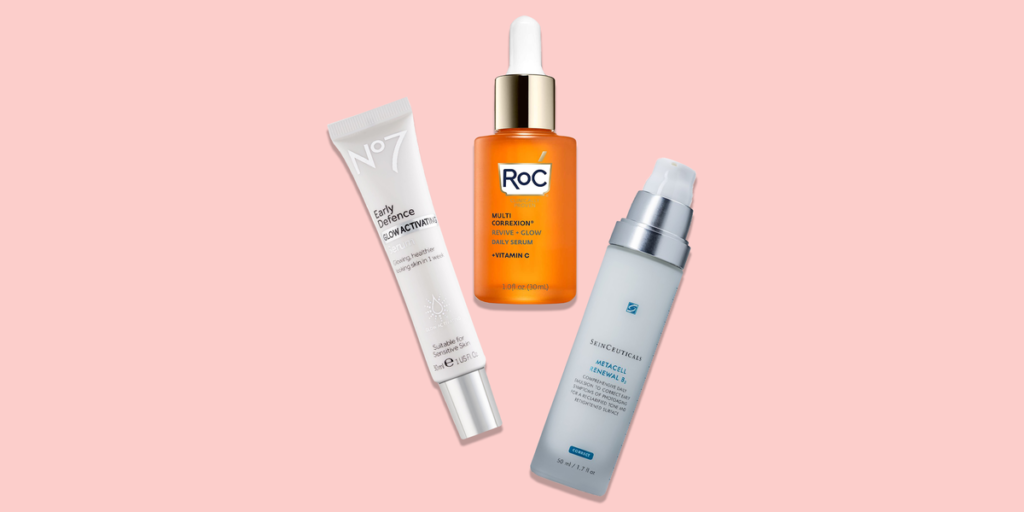Are you in your 30s and starting to notice fine lines, wrinkles, and other signs of aging on your skin? While aging is a natural process that cannot be stopped, there are steps you can take to help your skin look and feel its best as you age. Taking care of your skin in your 30s is essential to prevent further damage and maintain a youthful appearance.
This article will provide some effective anti-aging skincare tips for 30s to incorporate into your daily routine to keep your skin healthy, radiant, and glowing. Whether you’re just starting to take care of your skin or looking to revamp your skincare routine, these tips will help you maintain a youthful, radiant complexion.
Protect Your Skin from the Sun

One of the most important things you can do for your skin is to protect it from the sun. The sun’s harmful UV rays can cause wrinkles, age spots, and other signs of aging. Therefore, it is essential to wear sunscreen daily, even if you are not spending time outside. Look for a broad-spectrum sunscreen with an SPF of at least 30 and apply it to your face, neck, and hands.
If you are going to be spending time outside, make sure to wear a hat and protective clothing. Avoid being out in the sun during peak hours when the sun’s rays are the strongest. This is typically between 10 am and 4 pm.
Also Read. Discover the Best Skincare Routine for Oily Skin
Stay Hydrated
Drinking plenty of water is essential for your skin’s health. When dehydrated, your skin can become dry and flaky, making it more prone to wrinkles and fine lines. Drink at least eight glasses of water daily to keep your skin hydrated and healthy.
In addition to drinking water, you can use a hydrating moisturizer to moisturize your skin. Look for a moisturizer that contains hyaluronic acid, which helps to retain moisture in the skin.
Use Products with Antioxidants

Antioxidants are essential for healthy skin as they help to fight free radicals that can cause damage to your skin cells. Look for skincare products containing antioxidants such as vitamins C and E and green tea extract.
Vitamin C is an excellent antioxidant for your skin as it helps brighten your complexion and reduces fine lines and wrinkles. Vitamin E is another powerful antioxidant that helps to protect your skin from environmental damage.
Green tea extract is also an excellent antioxidant that helps to soothe your skin and reduce inflammation. Look for skincare products that contain green tea extract to help protect and nourish your skin.
Exfoliate Regularly
Exercising your skin regularly helps remove dead skin cells, leaving your skin brighter and more youthful. Use a gentle exfoliating scrub once or twice weekly to help remove dead skin cells and unclog pores.
If you have sensitive skin, look for a gentle exfoliating scrub that contains natural ingredients like oatmeal or jojoba beads. Avoid using harsh exfoliating scrubs that can irritate your skin and cause inflammation.
Get Enough Sleep
Getting enough sleep is essential for overall health and well-being and healthy skin. When you sleep, your body goes through a process of repair and regeneration, which includes your skin. During this time, your skin cells renew and rejuvenate, and the production of collagen, which gives your skin its elasticity, increases.
Not getting enough sleep can have adverse effects on your skin. Lack of sleep can cause the skin to appear dull, tired, and aged, and it can also exacerbate existing skin conditions such as acne and eczema. Sleep deprivation can also cause dark circles, puffiness, and fine lines around the eyes.
At what age does your face change most?

Our faces undergo a series of changes throughout our lives, influenced by various factors such as genetics, environmental factors, lifestyle, and aging. However, there are certain stages in life when the face undergoes significant changes.
Here are the age ranges during which the face changes the most:
Infancy:
During the first year of life, a baby’s face changes significantly as they proliferate. The head grows faster than the rest of the body, and facial features become more defined.
Puberty:
During puberty, which usually occurs between ages 9 and 14 for girls and 11 and 16 for boys, there are a lot of hormonal changes in the body. This can lead to changes in the face, such as the growth of facial hair, the development of acne, and changes in the shape of the face due to growth spurts.
Young adulthood:
Between the ages of 20 and 30, the face usually reaches its final shape and structure. However, the skin may still be prone to acne or other skin issues, and lifestyle factors such as sun exposure, smoking, and alcohol consumption can affect the skin’s texture and appearance.
Middle age:
The face may show signs of aging between 40 and 50. This can include wrinkles, sagging skin, and the loss of facial volume. These changes are due to a combination of factors such as a decrease in collagen production, the effects of gravity, and years of sun exposure.
Later years:
As we age beyond our 60s, the face can undergo further changes, such as deepening wrinkles and the loss of bone density, which can affect the shape of the face. The skin may also become thinner and more fragile, and age spots and other discolorations may become more visible.
It’s important to remember that everyone’s face ages differently and at their own pace, depending on various factors such as genetics, lifestyle, and environmental factors. However, the age ranges outlined above are generally considered the stages when the face changes the most.
Why do people in their 30s look old?

As aging is a complex process that a variety of factors can influence. However, there are a few reasons why some people in their 30s may appear to look older than others.
Genetics:
Genetics plays a significant role in how people age, including how quickly wrinkles and other signs of aging appear. Some people may be genetically predisposed to age faster than others.
Lifestyle:
People’s lifestyle choices can also affect how quickly they age. For example, smoking, excessive alcohol consumption, and a poor diet can accelerate aging.
Sun exposure:
Sun exposure is one of the leading causes of premature aging. Over time, exposure to the sun’s harmful UV rays can cause wrinkles, fine lines, and age spots.
Stress:
Chronic stress can also accelerate the aging process. When people are under a lot of stress, their bodies produce cortisol, a hormone that can break down collagen and elastin in the skin, leading to wrinkles and sagging skin.
Lack of sleep:
A lack of sleep can also contribute to the aging process. When people don’t get enough sleep, their bodies produce more cortisol, which can lead to the breakdown of collagen and elastin.
Environmental factors:
Exposure to pollution and other environmental factors can also contribute to the aging process. For example, air pollution can cause oxidative stress, damaging the skin and accelerating aging.
People in their 30s may look older due to genetics, lifestyle, sun exposure, stress, lack of sleep, and environmental factors. It’s essential to take care of your body and protect your skin from the sun and other environmental factors to slow aging.
How to look ten years younger at 30?

Looking ten years younger at 30 requires a combination of healthy lifestyle choices and effective skincare practices. Here are some tips to help you look younger and more youthful:
Protect your skin from the sun:
The sun’s UV rays are one of the primary causes of premature aging. To protect your skin, use a broad-spectrum sunscreen with an SPF of at least 30 days, even when it’s cloudy outside. Additionally, wear protective clothing like a hat and sunglasses.
Keep your skin hydrated:
Moisturizing your skin can help prevent dryness, leading to wrinkles and fine lines. Choose a moisturizer appropriate for your skin type and use it twice daily after cleansing.
Eat a healthy diet:
Eating a balanced diet rich in fruits, vegetables, lean proteins, and healthy fats can help nourish your skin from the inside out. Avoid processed and sugary foods, which can contribute to inflammation and accelerate aging.
Exercise regularly:
Regular exercise can help improve circulation, reduce stress, and promote healthy skin. Aim for at least 30 minutes of moderate exercise most days of the week.
Use anti-aging skincare products:
Look for products containing ingredients like retinol, vitamin C, and hyaluronic acid, which can help improve skin texture and reduce the appearance of fine lines and wrinkles. Additionally, exfoliating regularly can help remove dead skin cells and improve skin tone and texture.
Quit smoking:
Smoking accelerates aging and can lead to premature wrinkles and fine lines. If you smoke, quitting can significantly impact your skin’s appearance.
Reduce stress:
Chronic stress can accelerate aging by promoting inflammation and affecting hormone levels. Try stress-reducing activities like meditation, yoga, or deep breathing exercises.
By following these tips, you can help improve your skin’s health and reduce the signs of aging, helping you look and feel younger and more vibrant.
Conclusion!
In conclusion, I’d like to mention that while we know how to take care of our skin, we don’t always know how to care for our skin after 30. The 30s can be a scary time for your skin. It’s very different from when you were 20 or 25. While you’ll still have the same essential anti-aging ingredients in your skincare regimen, the dosages might be higher because you have more surface area to cover.
Your skin needs more time to absorb all these products. So, it’s essential to be patient with your skin. If you don’t, you may pay for it later in the form of wrinkles, pigmentation, etc. It may take forever to get results, but it does happen eventually.
FAQs!
How can I prevent my skin from aging in my 30s?
Here are some tips for aging in your 30s.
Protect your skin from the sun: Sun exposure is one of the primary causes of premature aging, so it’s essential to wear sunscreen with at least SPF 30 every day and limit your exposure to direct sunlight.
Stay hydrated: Drinking water and moisturizing your skin are crucial to maintaining health and preventing fine lines and wrinkles.
Follow a healthy lifestyle: Eating a balanced diet, getting enough sleep, and avoiding smoking and excessive alcohol consumption can help keep your skin healthy.
Use anti-aging skincare products: As you age, your skin produces less collagen and elastin, which can cause it to lose firmness and elasticity. Look for products that contain ingredients like retinol, vitamin C, and hyaluronic acid, which can help boost collagen production and reduce the appearance of fine lines and wrinkles.
Get regular facials: Professional treatments like chemical peels and microdermabrasion can help remove dead skin cells and stimulate collagen production, which can help keep your skin looking youthful.
What should my skincare routine be in my 30s?
Some general recommendations for a skincare routine in your 30s include:
Cleansing: Use a gentle cleanser twice daily to remove dirt, oil, and makeup from your skin.
Exfoliating: Exfoliate once or twice weekly to remove dead skin cells and promote cell turnover.
Moisturizing: Use a moisturizer with hyaluronic acid, ceramides, and glycerin to hydrate your skin.
Sun protection: Apply sunscreen with at least SPF 30 daily, even on cloudy days.
Anti-aging treatments: Consider using products with retinol, vitamin C, or peptides to help reduce the appearance of fine lines and wrinkles.
How do you deal with aging in your 30s?
Dealing with aging in your 30s can be challenging, but remember that everyone goes through a natural process. Embrace your age and focus on caring for your skin from the inside out.
What are the signs of aging mid-30s?
Some signs of aging in your mid-30s may include fine lines and wrinkles, dark spots, loss of elasticity, and uneven skin tone. However, these signs can vary from person to person and can be influenced by genetics, lifestyle, and sun exposure.
